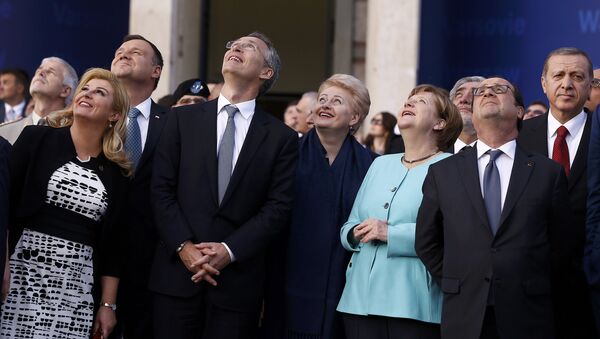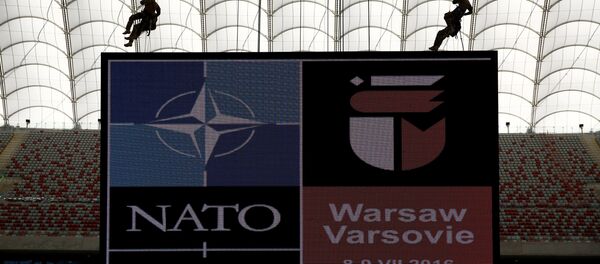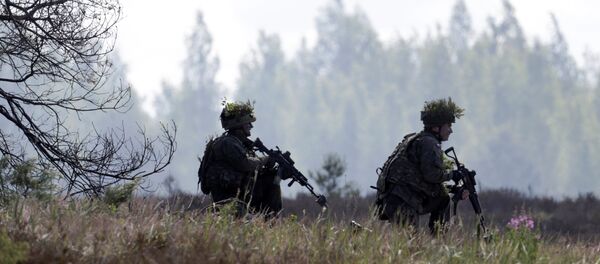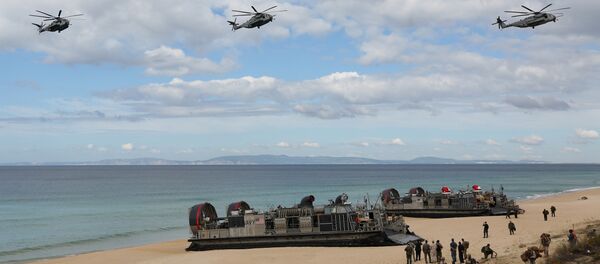The meeting might indeed become a significant turning point in relations with Russia, however, probably, not in a positive sense.
"From the perspective of many Europeans the Warsaw Summit was first of all and almost exclusively devoted to the big neighbor in the east," German newspaper Die Zeit wrote.
During the summit, NATO countries have finalized arrangements to strengthen the alliance's military presence in Eastern Europe, primarily in Poland and the Baltic states. The military buildup is aimed at deterring alleged "Russian aggression" which Russia's neighbors expressed their fears of.
Each country will receive a battalion of up to 1,000 soldiers. Canada will lead the battalion in Latvia, Germany — in Lithuania, United Kingdom — in Estonia, and the United States — in Poland.
NATO Secretary General Jens Stoltenberg particularly emphasized that the composition of the battalions will change in order to avoid violating the conditions of the NATO-Russia Founding Act, according to which the alliance pledged not to deploy troops in Eastern Europe on "a permanent basis," Russia will still view this decision as an aggression and as a potential threat to its national security.
"We will say that it poses a threat to us, that these actions are aggressive. And we will respond appropriately. We will deploy three divisions in response to these four battalions," Felgenhauer said, cited by RFI.
Earlier, Russian officials stated that Moscow would take adequate counter measures in response to unfriendly NATO steps.
At the same time, Stoltenberg noted that the alliance seeks to maintain dialogue with Russia and doesn't want a confrontation with Moscow.
However, ordinary people don't seem to view this situation in a similar way. For instance, one magazine reader under the nickname malcolmbarnett wrote:
"Russian aggression. What Russian aggression? After the US/NATO contrived overthrow of the democratically elected government in Ukraine, and the absurd US/NATO demands that Russia quit it's "only" warm water port in Crimea and the seemingly continuous attempts by the West to provoke Putin and paint him as an evil oligarch threatening the West, it's the Russians who should be extremely concerned about Western aggression."
"Of course NATO wants a new cold war. Unless they can convince the world that Russia is dangerous, they will have to disband NATO and get real jobs. However, all the aggression between NATO and Russia has been driven by NATO with rapid response teams on every Russian border, constant huge military exercises on the Russian borders and continual paranoid screeching about mythical subs and non-existent nuclear threats. NATO is primarily funded by, and led by, America and America loves the propaganda and the excuses to dominate Russia that the phony cold war provides. They have no intention of letting things cool down," another reader wrote under the nickname rodgerolsen.
NATO's military buildup near Russia's borders has repeatedly been criticized by many politicians and political experts. According to them, the move can contribute to the deterioration of relations between Russia and the West and undermine the security situation in the European region.






